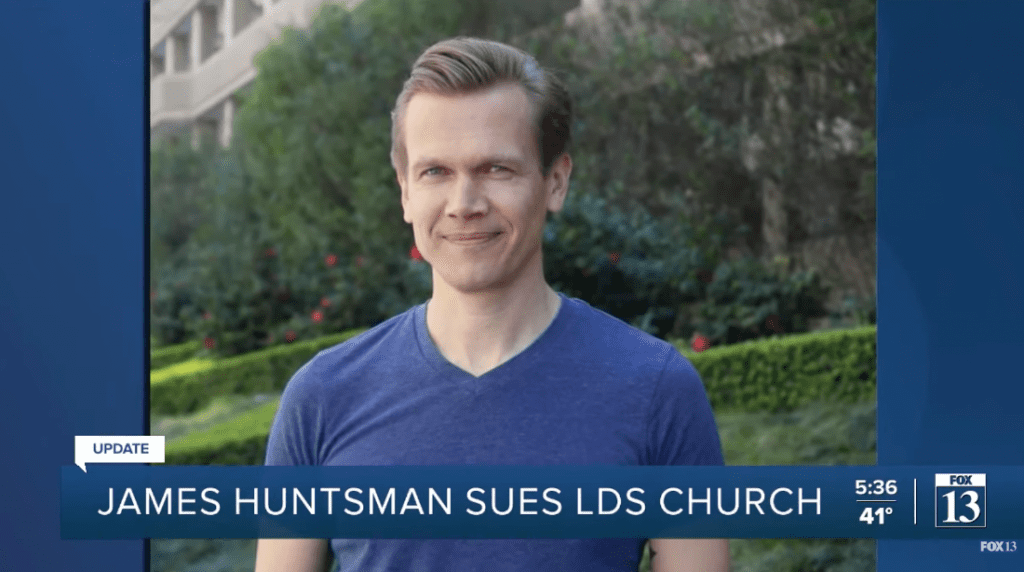Back in December of 2019, a whistleblower who worked for the Church of Jesus Christ of Latter-day Saints told the Washington Post that the Mormon Church had been “stockpiling their surplus donations instead of using them for charitable works.” They had over $100 billion sitting in that stockpile, which they were using to develop a for-profit mall and bail out a failing insurance agency. The whistleblowers, David A. and Lars P. Nielsen, informed the IRS of this information and called on the agency to revoke the organization’s tax-exempt status.
The Church said it never spent the money on anything it wasn’t supposed to and that the stockpile was necessary “in the event of the second coming of Christ.” Whatever that’s supposed to mean.
The IRS has never acted on the complaint — but the story just got another major boost.
Now, James Huntsman is suing the Mormon Church over the allegations in that complaint, saying that the church is spending members’ tithe money — his money — on things that had nothing to do with charity.

Huntsman isn’t just some random person here. He’s practically Romney-esque in Utah name recognition, given that he’s the brother of former presidential candidate (and former Utah governor) Jon Huntsman. And now James wants his money back.
In the suit, Huntsman says after the reports of the fund came out, he “repeatedly approached the corporation and demanded the return of his donations. However, the LDS Corporation refused, effectively taking the position that it could do whatever it wanted with tithing funds.”
…
In his suit, Huntsman uses sharp language, saying, “this is not a case about faith; it is a case about fraud and corporate greed.” He said the church where he spent much of his life, including as a leader and teacher, “repeatedly and publicly lied” about the use of tithing funds.”
Huntsman is specifically asking for $5 million back on top of other legal costs. He wants to use that cash to help “organizations and communities whose members have been marginalized by the church’s teachings and doctrines, including by donating to charities supporting LGBTQ, African American, and women’s rights.” It would certainly be a better use of those funds.
Huntsman also makes clear in the lawsuit that he’s not trying to damage the Church, though he’s no longer a member.
Hopefully this lawsuit will put an end to the LDS Corporation’s lies and deceit once and for all so that the Church can refocus its attention and efforts on following the path of righteousness and honesty paved by its former leaders.
So will it work?
Almost certainly not.
One legal expert, Sam Brunson, a Latter-day Saint and a tax law professor at Loyola University in Chicago, said the lawsuit lacked specifics and “isn’t going to answer anything.”
Unless Huntsman’s tithing donations were made as a gift with explicit restrictions, Brunson said, he’s unlikely to have legal grounds to recover the funds.
”The general rule is when you make an unrestricted donation to a charity, it’s the charity’s money,” he said. “And if you later discover that they’re doing stuff with the money that you don’t like, you’re out of luck.”
The 13-page lawsuit read more like a statement than a legal action likely to succeed, the law professor said, calling it “procedurally and factually deficient.”
The irony, then, is that the Mormon Church could very well be using tithe money to make a profit rather than assist others through charity… and it would all be above board. There’s no buyer’s remorse clause in the law when it comes to religious institutions.
But that doesn’t mean the lawsuit is pointless. It’s raising awareness of a very serious question any practicing Mormon ought to be asking: Where is my money going? Even if the Church wins, it’ll be because their answer amounts to saying We can do whatever we want with your money, even if it’s not going to charity.
That admission would still serve a useful purpose.
Everyone, Huntsman included, would have been better off — financially and in so many other ways — by never giving anything to the Mormon Church in the first place. That’s obviously harder to do when you’re raised in the faith or there’s family pressure to give. But when people are old enough to make their own decisions and choose to give money to a racist and anti-LGBTQ organization, they shouldn’t be shocked to realize the institution isn’t living up to the moral standard they were led to believe.
They should’ve listened to the ex-Mormons and non-Mormons who’ve been trying to warn them for years.
If the end result here is that a judge sides with the LDS Church, but practicing Mormons think twice before handing over any tithes, that could still have major ramifications. If this is what it takes to raise everyone’s consciousness, so be it.
(Screenshot via YouTube)




It’s Moving Day for the Friendly ..."
It’s Moving Day for the Friendly ..."
It’s Moving Day for the Friendly ..."
It’s Moving Day for the Friendly ..."